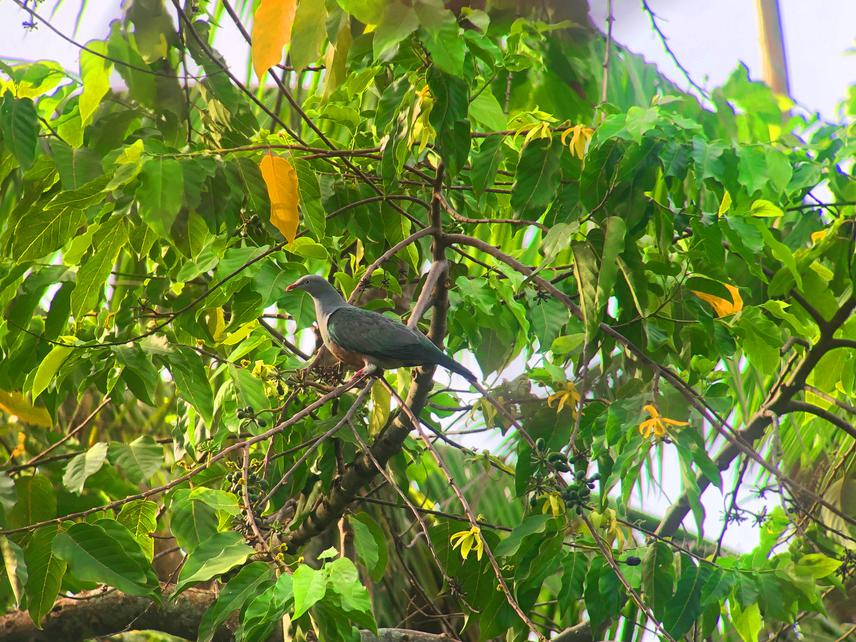Jelaine Gan
Philippine forests are increasing becoming fragmented. This affects landscape connectivity, which may cause species declines and altered ecosystem functions. Animal-mediated seed dispersal is one process at risk, because it requires movement between different areas. In the Philippines, frugivorous birds serve as important dispersers, but their populations are decreasing. We currently do not know how fragmentation contributes to their decline and consequently affect seed dispersal.

A Spotted Imperial-pigeon (Ducula carola) was feeding on the fruits of the Ylang-ylang tree. © Adrian Constatino
This study will determine how the Vulnerable Spotted Imperial-pigeon, our chosen avian frugivore model, utilizes the fragmented landscape and assess fragmentation impact to seed dispersal. We plan to capture 10 individuals and conduct radio-tracking to examine their movement. We will also conduct feeding experiments with captive pigeons to determine seed retention time (SRT). The movement and SRT data will be used to create an individual-based model to simulate the spatial extent of seed dispersal. With this, we can recommend strategies for reforestation activities, such as identifying priority sites for increased habitat connectivity.